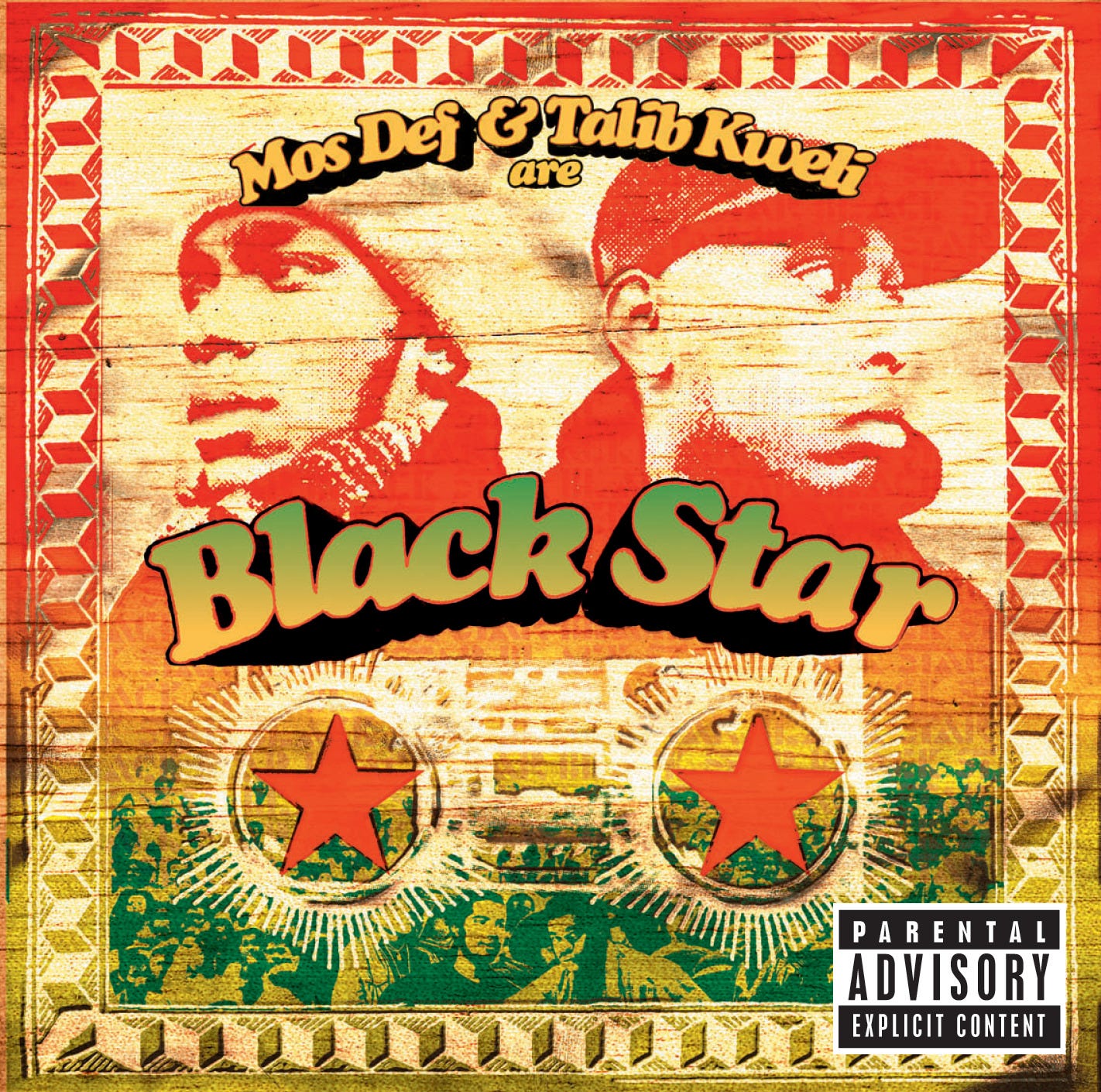Retrospective Review: Mos Def & Talib Kweli Are Black Star by Black Star
Black Star offers an alternative to mainstream hip-hop with a classic album.
Before Black Star’s formation, Mos Def (who later adopted the name Yasiin Bey) and Talib Kweli had been carving out their niches in the hip-hop world. Mos Def juggled his acting career while recording tracks with his brothers as Urban Thermo Dynamics/Medina Green. He even lent his lyrical skills to De La Soul’s “Big Brother Beat.” On the other hand, Talib Kweli was making waves in the underground scene, collaborating with artists like Mr. Man and Da Bush Babees. Both artists were deeply influenced by hip-hop luminaries such as De La Soul, A Tribe Called Quest, and Public Enemy. Their paths eventually converged at Rawkus Records, an independent label that became the epicenter of authentic hip-hop during the late ‘90s.
The album’s production has diverse influences and styles, with Hi-Tek taking the helm for most tracks. Often considered the project’s unofficial third member, Hi-Tek’s contributions are indispensable to the album’s cohesive sound. However, the album also features other producers like Shawn J. Period, Ge-Ology, J. Rawls, 88 Keys, and Da Beatminerz, each adding unique flavor to the project. The album’s standout single, “Definition,” showcases Hi-Tek’s meticulous craftsmanship as he recreates the beat for Boogie Down Productions’ “P Is Free,” paying homage to the golden age of hip-hop.
What sets Mos Def & Talib Kweli Are Black Star apart from its contemporaries is its thematic richness. The album is a clarion call for anti-establishment thinking and places a premium on education. It doesn’t shy away from critiquing the genre’s commercialization while urging listeners to elevate their consciousness. The album’s messages are not confined to the socio-political landscape of New York; they resonate universally, making the album as relevant today as it was a quarter-century ago.
The tracks “Definition” and “Re: Definition” are a dual homage to the borough of Brooklyn and the golden age of hip-hop. The lyrical dexterities Mos Def and Talib Kweli intertwined pay tribute to hip-hop’s geographical and historical landscapes. Hi-Tek’s production, a recreation of Boogie Down Productions’ “P Is Free,” adds a layer of nostalgia while simultaneously pushing the boundaries of innovation. These tracks are a window into Black Star’s deep understanding of hip-hop’s past and their desire to contribute meaningfully to its future.
In contrast, “Children’s Story” and “K.O.S. (Determination)” offer a nuanced critique of the music industry and a call to intellectual awakening. “Children’s Story” repurposes a classic Slick Rick track to lament the state of mainstream hip-hop, questioning the lack of creativity in looping ‘80s pop hits. “K.O.S. (Determination)” is a counterpoint, a mellower and introspective piece that encourages the audience to place a higher value on knowledge and education. The track’s laid-back sample of Minnie Riperton’s “Baby, This Love I Have” provides a soulful backdrop for Kweli’s exhortations.
“Hater Players” was a direct critique of mainstream hip-hop, a bold stance on authenticity within the genre. Mos Def and Talib Kweli target artists who have gained mainstream attention, dismissing the notion that disliking an artist’s work makes one a “Player Hater.” The track is a clarion call for authenticity, urging listeners to demand more from the artists who occupy the hip-hop stage.
The album’s best track, “Respiration,” featuring Common, is a lyrical masterpiece that portrays urban life as a living, breathing entity. Each artist brings a unique perspective, chronicling the pain, horror, and suffering in vivid detail. The track’s mellow yet urgent and jazzy beat by Hi-Tek is the perfect canvas for these unforgettable images of urban decay.
“Thieves in the Night” draws inspiration from Toni Morrison’s acclaimed novel ‘The Bluest Eye.’ The track challenges listeners to rise above the inferiority complex that society often imposes. Mos Def and Talib Kweli use their verses to confront and dissect racial and cultural stereotypes, urging a balanced self-view that transcends societal labels.
The album concludes with “Twice Inna Lifetime,” a posse cut featuring Punch & Words and Jane Doe. The detailed lyricism displayed by each artist serves as a fitting conclusion to an album that has consistently showcased what hip-hop can be, musically and intellectually.
As for the album’s enduring influence, it has aged gracefully, continuing to be a touchstone for discussions about intellectual and socially conscious hip-hop. Mos Def and Talib Kweli leveraged the momentum from this album to launch successful solo careers. The enduring demand for another Black Star album (spoiler alert: it’s disappointing) reveals its cultural significance even after over two decades.
Despite the shifts in the music industry and the broader cultural milieu, the album remains a point of reference for both artists’ audiences. Its universal themes and ability to connect with listeners on a deeply personal level speak volumes about its timeless appeal.


